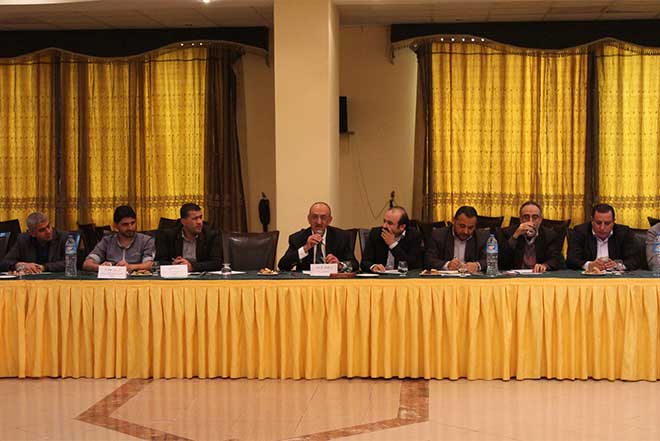Workshop Promotes Civil Society Engagement in Healing Political Rift
Scenarios to enhance the engagement of civil society in the Palestinian reconciliation process were discussed in a two-day workshop organized by Ibrahim Abu Lughod Institute for International Relations Studies and Pal-Think for Strategic Studies.
The workshop brought together a number of representatives of civil society organizations in the southern and northern governorates, who wrote a practical framework to better engage the civil society in the reconciliation process. A committee that consists of four civil society representatives was formed to achieve the suggested framework.
The workshop was meant to open doors for a constructive exchange of ideas and views among participants that will lead to more encompassing dialogue in the future. Participants discussed the role of youth, higher education and good governance to forwarding the outcomes of the Palestinian unity dialogue between political factions.
Chairman of Pal-Think for Strategic Studies Omar Shabaan said that a broad engagement of political and civil society actors will contribute to reaching an authentic reconciliation agreement. “This workshop is meant to provide a clear platform for a constructive exchange of views and ideas in order to find ways of providing constructive contribution to the enforcement of the Palestinian unity.”
“We are convinced that civil society in Palestine has an important role to play in building up a united society with Palestinians aspirations,” Law Department faculty member and Abu Lughod Institute participant Ghassan Farmand said. “The active involvement of socioeconomic actors in the process of Palestinian reconciliation is vital for implementing authentic unity with sustainable results. This workshop can be the road towards a structured dialogue among the Palestinian parties and civil society organizations, setting firm conditions towards establishing the forthcoming unity.”
The Palestinian political scene has been bitterly divided between the factions of Fateh and Hamas since 2006, when Hamas won general elections and unseated Fateh as the dominant force in Palestinian politics only to later take security control in the Gaza Strip leaving Fateh in power in the West Bank. A reconciliation process has repeatedly tried to resolve the internal and now entrenched political conflict, but agreements remain stalled.







